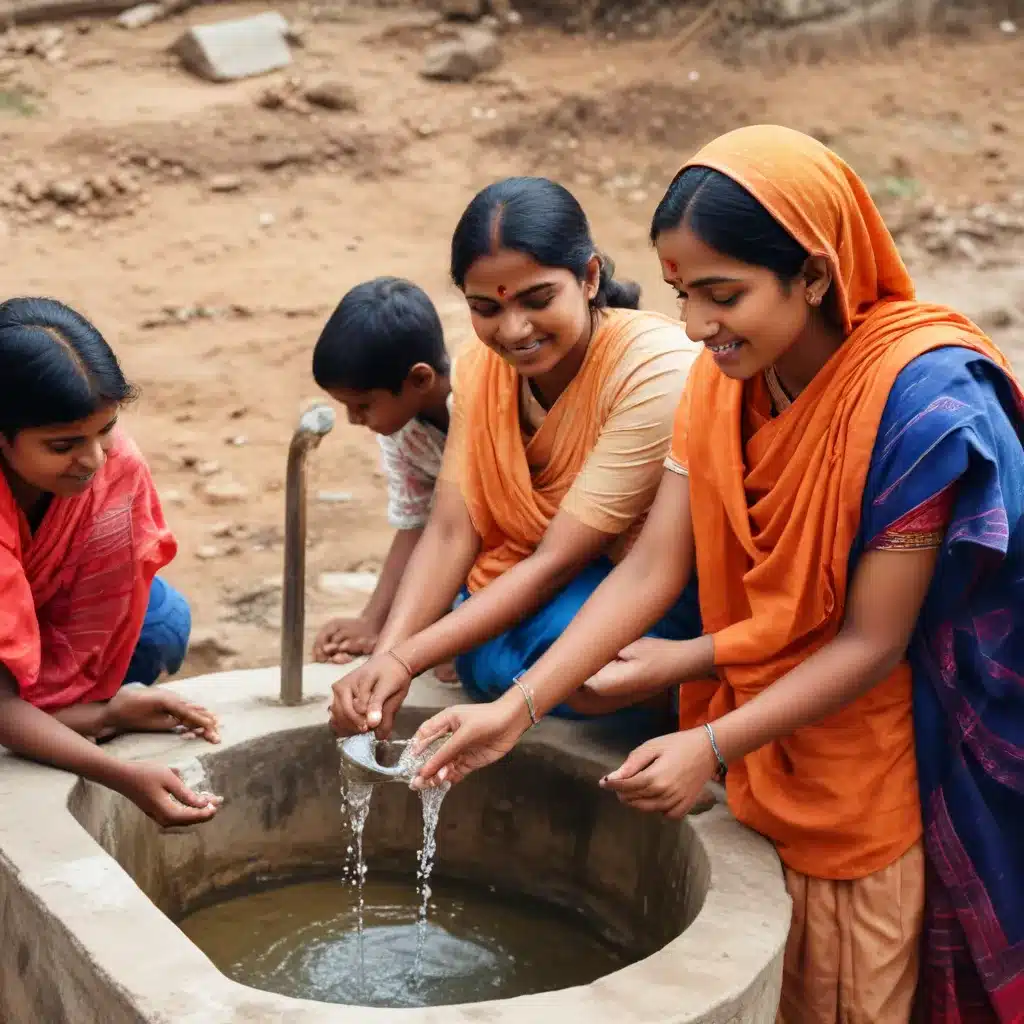
Empowering Communities Through Data-Driven WASH Solutions
In the bustling city of Hyderabad, home to over 10 million residents, access to clean water and adequate sanitation remains a pressing challenge. As a seasoned expert in the water and sanitation sector, I’ve witnessed firsthand the transformative power of digital technologies in addressing these critical issues. By harnessing the power of data and innovative digital tools, we can unlock new pathways for improved water, sanitation, and hygiene (WASH) services, ultimately enhancing the well-being of Hyderabad’s diverse communities.
Bridging the WASH Data Gap
One of the key barriers to effective WASH service delivery in Hyderabad has been the lack of comprehensive and accurate data. Traditional data collection methods often fall short, leaving crucial information gaps that impede informed decision-making. This is where digital technologies can make a significant difference.
The proliferation of mobile devices and internet connectivity has paved the way for the development of cutting-edge digital data collection platforms. These tools enable the real-time capture of WASH-related data, including water quality assessments, sanitation infrastructure mapping, and user feedback. By equipping community health workers and volunteers with customized mobile applications, we can streamline the data gathering process and ensure the information is accurate, reliable, and easily accessible.
Harnessing the Power of GIS and Spatial Analytics
Geospatial technologies, such as Geographic Information Systems (GIS), have become invaluable in the WASH sector. By integrating GIS data with water and sanitation infrastructure information, we can create detailed, spatially-enabled datasets that provide a comprehensive understanding of the WASH landscape in Hyderabad.
This data-driven approach allows us to:
- Identify underserved areas: Overlay water supply networks, sanitation facilities, and demographic data to pinpoint communities with limited access to WASH services.
- Optimize infrastructure planning: Analyze patterns and trends to determine the most strategic locations for new water treatment plants, sewage networks, and public toilet facilities.
- Monitor service delivery: Track the performance and maintenance of WASH infrastructure, ensuring equitable and reliable service provision.
Empowering Communities through Digital Engagement
Engaging with local communities is crucial for the successful implementation and sustainability of WASH interventions. Digital technologies can serve as powerful tools for fostering meaningful dialogue and collaboration between citizens, WASH service providers, and local authorities.
In Hyderabad, we’re leveraging digital platforms to:
- Facilitate community feedback: Develop user-friendly mobile applications and web portals that allow residents to report WASH-related issues, concerns, and suggestions.
- Enhance transparency: Publish real-time WASH service data and performance indicators, empowering communities to hold service providers accountable.
- Promote behavior change: Utilize social media, SMS messaging, and digital signage to disseminate targeted WASH education campaigns, encouraging positive hygiene practices and water conservation.
Strengthening WASH Governance through Data-Driven Decision-Making
The effective management of WASH services requires robust governance frameworks and evidence-based decision-making. By integrating digital technologies into WASH governance processes, we can strengthen planning, monitoring, and evaluation mechanisms, ultimately leading to more sustainable and equitable service delivery.
In Hyderabad, we’re implementing the following strategies:
- Digital WASH information systems: Establish centralized, cloud-based platforms that consolidate data from various sources, enabling policymakers and WASH authorities to access and analyze comprehensive WASH data.
- Data-driven performance monitoring: Develop key performance indicators (KPIs) and dashboards to track the efficiency, coverage, and equity of WASH services, informing resource allocation and policy adjustments.
- Collaborative WASH governance: Foster multi-stakeholder partnerships, including local governments, utility providers, and community organizations, to collectively leverage digital tools for improved WASH planning and decision-making.
Navigating the Challenges and Realizing the Promise
While the potential of digital technologies in the WASH sector is immense, we must also address the challenges that come with their implementation. Issues such as digital literacy, infrastructure gaps, and data privacy and security must be carefully navigated to ensure the equitable and sustainable adoption of these tools.
To overcome these challenges, we are taking a comprehensive approach:
- Capacity building: Invest in training programs for WASH professionals, community health workers, and residents to enhance their digital skills and familiarity with the available tools and platforms.
- Inclusive infrastructure development: Prioritize the expansion of reliable internet connectivity and mobile network coverage, especially in underserved communities, to enable widespread access to digital WASH services.
- Data governance and privacy: Establish robust data management policies, encryption protocols, and user consent mechanisms to protect the privacy and security of WASH-related data.
By addressing these critical considerations, we can harness the transformative potential of digital technologies and create a more equitable, resilient, and sustainable WASH landscape in Hyderabad.
Towards a Digitally-Empowered WASH Future
The journey towards universal access to clean water and adequate sanitation in Hyderabad is a complex and multifaceted endeavor. However, by embracing the power of digital technologies, we can unlock innovative solutions, empower communities, and drive tangible improvements in WASH service delivery.
Through the seamless integration of data-driven decision-making, citizen engagement, and collaborative governance, we can pave the way for a future where every resident of Hyderabad has access to safe, reliable, and sustainable WASH services. This vision aligns with the goals of the Joint Action for Water initiative, which seeks to promote sustainable water and sanitation solutions that prioritize community needs and environmental stewardship.
As we forge ahead, I am optimistic that the strategic application of digital technologies, coupled with a steadfast commitment to inclusive and equitable WASH practices, will transform Hyderabad into a shining example of how data-driven innovation can empower communities and drive meaningful change.

